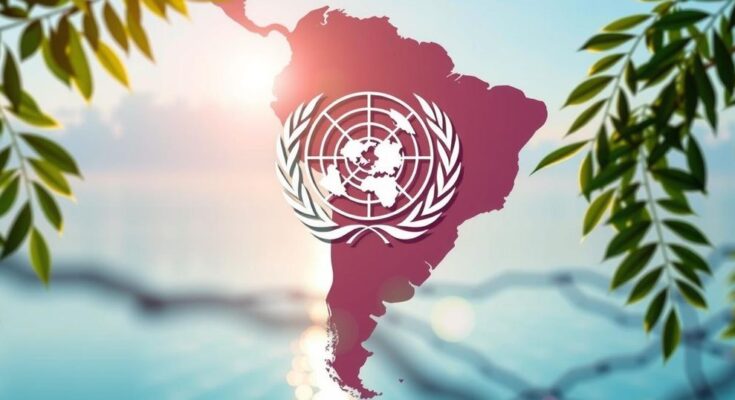Argentina’s President Javier Milei has announced plans to withdraw from the WHO, citing severe disagreements over health policies and political influences. The decision aims to reclaim national sovereignty and tailor health policies to Argentina’s specific needs. This move follows the U.S.’s recent departure from the WHO, reflecting a trend of prioritizing national interests over global partnerships.
Javier Milei, the President of Argentina, has declared his intention to withdraw the country from the World Health Organization (WHO), based in Geneva. His spokesperson, Manuel Adorni, attributed this decision to significant disagreements regarding health policies and political influences affecting the organization. He emphasized Argentina’s commitment to sovereignty, stating that the country will not permit an international entity to intervene in its health matters.
Adorni criticized the previous government’s pandemic response, noting that the lockdown implemented during Alberto Fernandez’s administration was the most prolonged in history. He pointed out the perceived lack of autonomy within the WHO, which he claims is influenced by certain states. This withdrawal aims to provide Argentina with greater flexibility to customize health policies according to national interests and needs.
Milei’s announcement comes in the wake of the United States’ recent decision to exit the WHO, a move made following criticisms of the organization’s handling of the pandemic by former President Donald Trump. Since taking office in December 2023, Milei has frequently aligned himself with Trump and his administration’s policies. The WHO expressed disappointment at the U.S. withdrawal and hopes for reconsideration as the withdrawal date approaches in January 2026.
This decision to withdraw from the WHO reflects ongoing tensions regarding global health governance and national autonomy in health policy, particularly in the context of the COVID-19 pandemic. Previous administrations have faced scrutiny for their health management approaches, leading to significant political discourse about the role of international organizations in domestic affairs. The current government under Milei appears to be adopting a more nationalistic approach to health governance, prioritizing local sovereignty and tailored health solutions.
In summary, President Milei’s decision to withdraw Argentina from the WHO emphasizes a shift toward prioritizing national sovereignty in health matters. His administration highlights dissatisfaction with previous global health policies and aims to customize health strategies according to Argentine needs. This move parallels recent developments in other countries, notably the U.S., reflecting broader trends in international health diplomacy post-pandemic. The implications of such withdrawals on global health cooperation remain to be fully understood.
Original Source: www.swissinfo.ch




